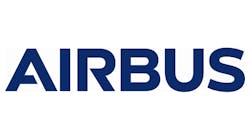In spite of the challenges created by the COVID-19 pandemic, the Birmingham Airport Authority continues to move forward with its construction projects at Birmingham-Shuttlesworth International Airport (BHM). Two new projects will soon be underway to improve airport infrastructure and enhance safety and efficiency, all while making a positive economic impact for the local community. The projects include pavement rehabilitation of the airport’s secondary runway and grading and drainage work to improve the navigational aid on the primary runway.
“We’re very pleased to move forward on these projects,” said Ronald F. Mathieu, Birmingham Airport Authority president and CEO. “It’s our commitment, our task, and our job to not only improve the airport infrastructure for the users of the airport, but to also make an economic impact for those who live, work, and do business in our community.”
The projects will be federally funded through Federal Aviation Administration Airport Improvement Program (AIP) discretionary grants and CARES Act funds. Construction will officially begin in the upcoming weeks and will not impact arriving and departing travelers.
Runway 18/36 Rehabilitation Project
- Contractor: Dunn Construction
- Project Scope: Addresses pavement fatigue and extends the useful life of the 7,100-foot runway primarily used for general aviation traffic. Work includes 3-inch mill and overlay with a runway closure up to 70 days
- Estimated Project Cost: $8.1 million
- Funding Source: 100% federal funding (90% FAA AIP discretionary grant; 10% CARES Act funds)
Runway 24 Glide Slope Terrain Improvement Project
- Contractor: Tortorigi Construction
- Project Scope: Addresses signal interference to the glide slope (antenna) to improve the navigational aid for pilots landing on Runway 24. Work includes grading and drainage work for approximately 180 days
- Estimated Project Cost: $3 million
- Funding Source: 97% federal funding (FAA AIP discretionary grant and CARES Act) and 3% BAA funds.


